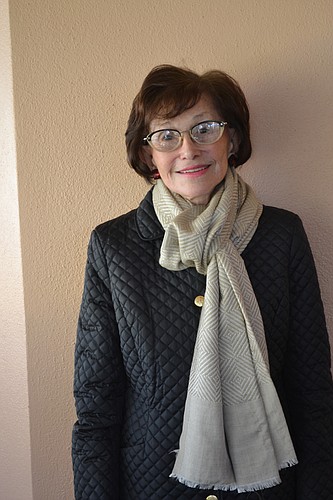- November 28, 2024
-
-
Loading

Loading

I have long wanted to write a column about nutrition but lack the credentials. One of my Pilates students, however, has them in abundance: Meet nutritionist Charlotte Gollobin, a leader in her field with three decades-plus experience.
Over lunch, she shared her knowledge and guidance.
What is the difference between a dietician and a nutritionist?
I have never really understood this, and the answer, it turns out, is education. It’s a long and somewhat convoluted story in which Gollobin was involved: In 1986, she participated in the founding of the American Nutritionists Association, which has since been absorbed by the American College of Nutrition. Today, the classifications share a single moniker: LDLN for licensed dietician, licensed nutritionist. Individuals with undergraduate degrees are dieticians; those with a masters or doctoral degree are nutritionists.
High cholesterol foods are not necessarily bad
“For years,” Gollobin said, “we have been telling people to avoid saturated fat. Now we are finding out that it is not so bad.” The professional position today is that it is not saturated fat but trans fatty acids that cause problems. The body needs some cholesterol. It is trans fats that are to be avoided, and foods may have trace amounts even if the label specification is a zero.
Eat organic
“Everybody sells it now,” Gollobin says, “and it is no longer so much more money. Costco is now selling organic meat.” Her advice here is unequivocal, especially when it comes to eggs and meat because “growers use large amounts of antibiotics and hormones, and the food the animals eat may have been GM (genetically modified) so you don’t know what you are taking in.” She counsels avoiding GM (also known as GMO) “because we don’t know what their impact will be 20 years out.” Even today, Gollobin wonders whether the proliferation of gluten sensitivity could be associated with a modification of the molecular structure of wheat. If scientists are modifying corn so it will repel insects, it is a bit scary to contemplate how that corn might behave in the human body.
What about supplements?
I have long wondered: Are supplements really helpful? Gollobin says yes: “You really can’t get everything from food.” She suggests supplements when she feels they will be helpful but does not sell them. She emphasizes that recommendations need to be based on a careful evaluation of an individual’s needs. For something like arthritis discomfort, for example, there are options including glucosamine and chondroitin sulfates and fish oil. For iron deficiency, there are different forms of iron, some of them more or less constipating.
Words of wisdom
“Read labels. It takes time but read them. Sugar should be at the end of the list.”
“You are much better off eating the whole fruit, especially berries, than drinking fruit juice.”
“The best way to raise your ‘good’ (HDL) cholesterol is exercise, and it’s the ratio of HDL to LDL that counts.”
“Eat smaller portions. People in this country eat too much of the wrong things.”
Gollobin’s message is clear: Know what you are eating.
Molly Schechter is an ACE-certified personal trainer with a specialty in older-adult fitness plus YogaFit Instructor Training, SCF Yoga Fundamentals I and II and Power Pilates™ Mat Certifications. She teaches classes at the Bayfront Park Recreation Center. Email her at [email protected].